Chia seeds, derived from the Salvia hispanica plant, have gained immense popularity as a superfood due to their remarkable nutritional profile. This tiny black seed, native to Mexico, is not only versatile in culinary applications but also packed with a plethora of health benefits. In this article, we will explore the nutritional composition of chia seeds, their health advantages, various uses, and how to effectively incorporate them into your daily diet.
Chia seeds are often hailed as a superfood because they are rich in essential nutrients. They contain a balanced combination of:
- Omega-3 fatty acids
- Dietary fiber
- Protein
- Vitamins and minerals, including calcium and magnesium
- Antioxidants
Chia seeds are one of the richest plant sources of omega-3 fatty acids, which are essential for maintaining heart health and supporting brain function. These healthy fats help reduce inflammation, lower cholesterol levels, and may even improve mood and cognitive function.
The high fiber content in chia seeds, approximately 10 grams per ounce, plays a crucial role in promoting digestive health. Fiber aids in regular bowel movements, helps prevent constipation, and can contribute to weight management by enhancing feelings of fullness.
Yes! Chia seeds can support weight loss efforts. When consumed, they absorb water and expand in the stomach, which helps create a sense of satiation. This property can lead to reduced calorie intake, making them a great addition to a weight-loss diet.
There are countless ways to enjoy chia seeds. Here are a few popular methods:
- Add them to your smoothies for a nutritious boost.
- Mix them into yogurt or oatmeal for added texture and nutrition.
- Use them as an egg substitute in baking by mixing one tablespoon of chia seeds with three tablespoons of water.
- Prepare a delicious chia seed pudding by soaking them in milk or a milk alternative overnight.
Chia seed pudding is a delightful and nutritious treat that can be customized to your taste. To make it, simply combine:
1/4 cup chia seeds1 cup of milk or milk alternative1-2 tablespoons of sweetener (like honey or maple syrup)Flavorings such as vanilla extract or cocoa powder
Stir well and let it sit in the refrigerator for at least 2 hours or overnight. Top with fruits, nuts, or granola before serving!
While chia seeds are generally safe for most individuals, they can pose risks for those with certain allergies or digestive issues. It’s essential to consume them in moderation and drink plenty of water to avoid potential digestive discomfort.
When selecting chia seeds, look for organic, non-GMO options that are free from additives. This ensures you are getting the highest quality product that maximizes health benefits.
To maintain freshness and nutritional value, store chia seeds in a cool, dry place in an airtight container. This helps prevent spoilage and keeps them ready for use in your meals.
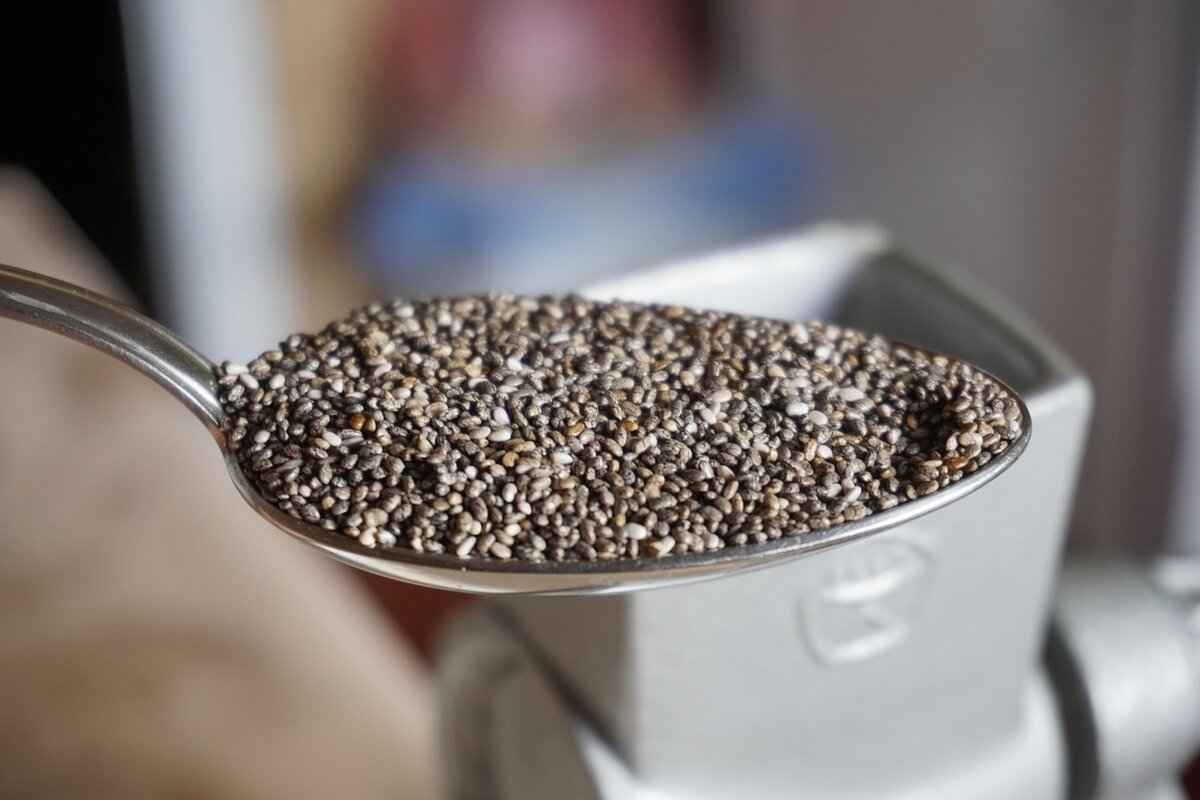
What Are Chia Seeds?
Chia seeds are tiny black seeds derived from the Salvia hispanica plant, which is indigenous to Mexico and Guatemala. These seeds have gained immense popularity in recent years, largely due to their impressive nutritional profile and versatility in various dietary practices. They are rich in essential nutrients and can easily be incorporated into a wide range of meals.
Originally cultivated by the ancient Aztecs and Mayans, chia seeds were considered a vital source of energy and nutrition. Today, they are celebrated as a superfood and are embraced by health enthusiasts worldwide. Their ability to absorb water and form a gel-like consistency makes them unique and beneficial for various culinary uses.
Chia seeds are often labeled as a superfood due to their remarkable concentration of nutrients. They are an excellent source of omega-3 fatty acids, dietary fiber, protein, and numerous vitamins and minerals. This combination of nutrients contributes to their reputation as a powerhouse of health benefits.
- Omega-3 Fatty Acids: Chia seeds are one of the richest plant-based sources of omega-3s, which are essential for heart and brain health.
- Dietary Fiber: With a high fiber content, chia seeds support digestive health and help maintain stable blood sugar levels.
- Protein: They provide a complete protein source, making them an excellent addition to vegetarian and vegan diets.
- Calcium and Magnesium: These minerals are crucial for bone health and metabolic functions.
- Antioxidants: Chia seeds contain antioxidants that help combat oxidative stress and inflammation in the body.
The high fiber content in chia seeds plays a significant role in promoting digestive health. When consumed, they absorb water and expand in the stomach, which aids in creating a feeling of fullness. This property not only helps in regulating appetite but also promotes regular bowel movements, thereby preventing constipation.
Chia seeds may assist in weight loss efforts due to their unique ability to absorb liquid. This absorption creates a gel-like substance that expands in the stomach, leading to increased feelings of fullness and reduced hunger. Incorporating chia seeds into meals can help control calorie intake and support weight management goals.
There are numerous ways to enjoy chia seeds. Here are some practical suggestions:
- Add them to smoothies for a nutritional boost.
- Mix them into yogurt or oatmeal for added texture and health benefits.
- Use chia seeds as an egg substitute in baking by mixing them with water.
- Prepare chia seed puddings by soaking them in milk or a milk alternative.
While chia seeds are generally safe for most people, some individuals may experience digestive issues if consumed in excess. It’s important to start with a small amount and gradually increase intake while ensuring adequate hydration. Those with specific allergies should consult a healthcare provider before adding chia seeds to their diet.
When selecting chia seeds, it is essential to look for high-quality options. Choose organic, non-GMO seeds that are free from additives and preservatives. This ensures that you are getting the maximum health benefits from your chia seeds.
To maintain the freshness and nutritional value of chia seeds, store them in a cool, dry place. An airtight container is recommended to prevent moisture and spoilage. Proper storage will help you enjoy the benefits of chia seeds for a more extended period.
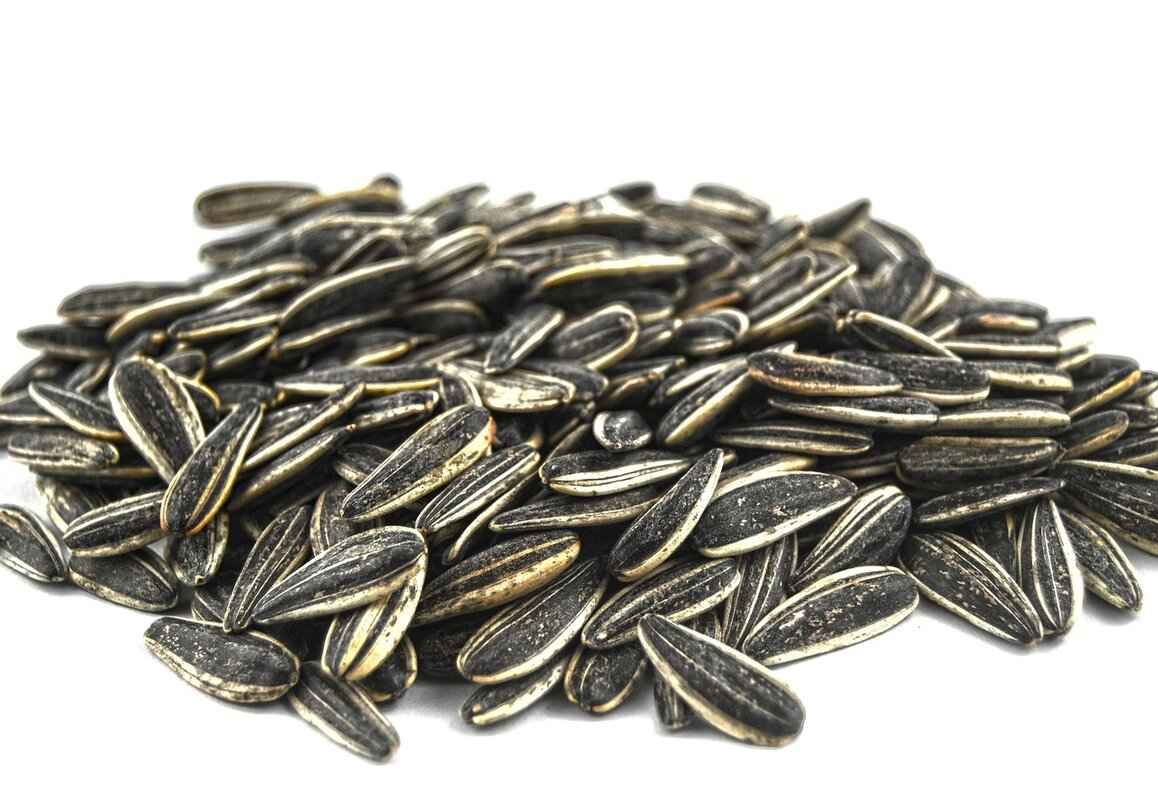
Why Are Chia Seeds Considered a Superfood?
Chia seeds have gained immense popularity in recent years, often being hailed as a superfood. But what exactly makes these tiny seeds so remarkable? In this section, we will explore the myriad reasons why chia seeds are considered a vital component of a healthy diet.
Chia seeds are incredibly nutrient-dense, meaning they provide a high amount of essential nutrients relative to their caloric content. This makes them an excellent choice for anyone looking to enhance their diet without consuming excessive calories. Here are some of the key nutrients found in chia seeds:
- Omega-3 Fatty Acids: These essential fats are crucial for heart health and brain function. Chia seeds are one of the richest plant sources of omega-3s, providing a significant health boost.
- Fiber: High in dietary fiber, chia seeds promote digestive health and can aid in weight management by enhancing satiety and regulating blood sugar levels.
- Protein: Chia seeds contain a good amount of protein, making them a valuable addition to vegetarian and vegan diets.
- Minerals: They are a great source of calcium, magnesium, and phosphorus, which are essential for bone health.
- Antioxidants: Chia seeds are rich in antioxidants, which help combat oxidative stress and inflammation in the body.
The omega-3 fatty acids found in chia seeds, particularly alpha-linolenic acid (ALA), have been shown to reduce inflammation and lower the risk of heart disease. Regular consumption of these seeds can help maintain healthy cholesterol levels and improve overall cardiovascular health.
Chia seeds can be a valuable ally in weight management. Their high fiber content helps keep you feeling full longer, which can help prevent overeating. When chia seeds are mixed with liquid, they expand and form a gel-like consistency, which can further enhance feelings of fullness.
The soluble fiber in chia seeds aids digestion by promoting regular bowel movements and preventing constipation. This makes them an excellent addition to a balanced diet, especially for those looking to improve their digestive health.
Incorporating chia seeds into your diet is easy and versatile. Here are some popular methods:
- Add them to smoothies for a nutritional boost.
- Sprinkle them on top of yogurt or oatmeal.
- Use them as an egg substitute in baking by mixing with water.
- Make chia seed pudding by soaking them in milk or a milk alternative.
While chia seeds are generally safe for most people, they should be consumed in moderation. Some individuals may experience digestive discomfort if they consume too many seeds at once. It’s essential to stay hydrated when eating chia seeds, as they absorb a significant amount of water.
When selecting chia seeds, look for organic and non-GMO options that are free from additives and preservatives. High-quality seeds will have a rich, nutty flavor and a crunchy texture.
To maintain the freshness and nutritional value of chia seeds, store them in a cool, dry place in an airtight container. Proper storage can prevent spoilage and ensure that you get the most health benefits from these tiny seeds.
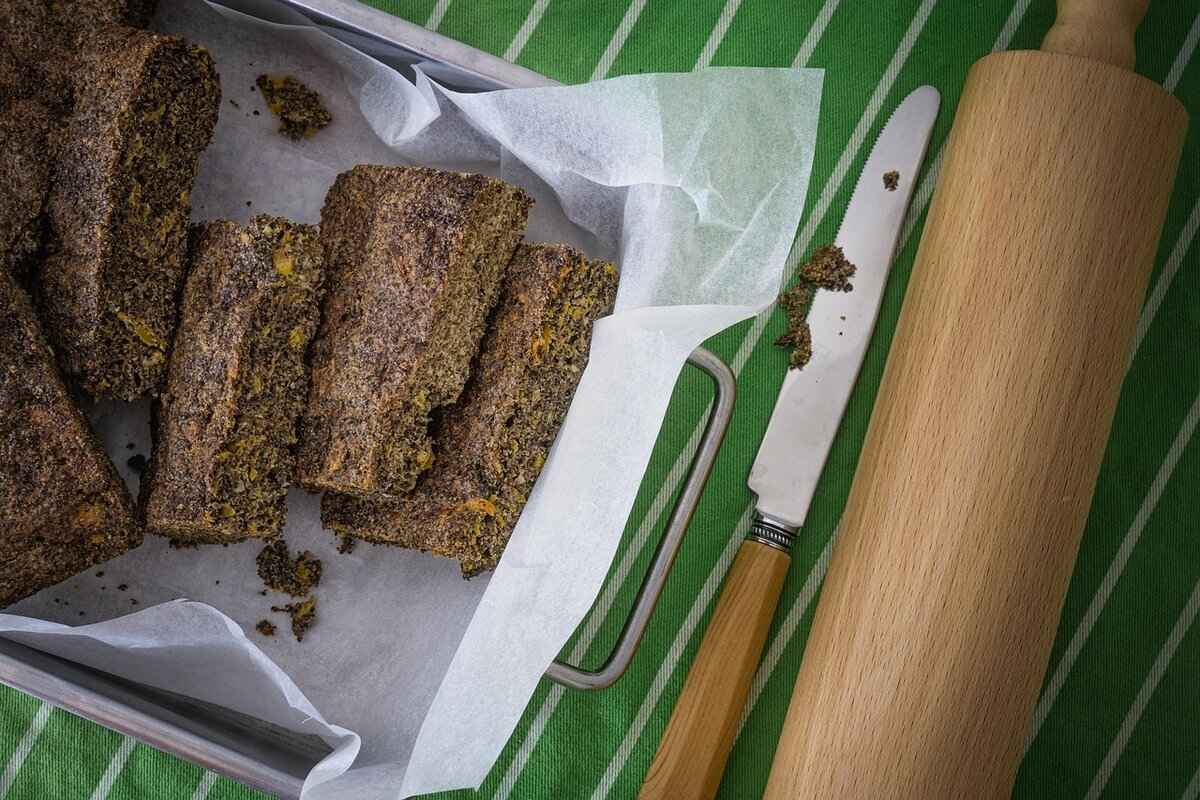
What Nutrients Are Found in Chia Seeds?
Chia seeds have gained immense popularity in recent years, and for good reason. These tiny seeds are not only versatile but also boast an impressive nutritional profile that makes them a staple in health-conscious diets. Packed with a variety of essential nutrients, chia seeds are often hailed as a superfood. In this section, we will explore the multitude of nutrients found in chia seeds and how they contribute to overall health.
Chia seeds are a treasure trove of nutrients that can significantly enhance your diet. Here are some of the key components:
- Calcium: Chia seeds are an excellent source of calcium, providing about 18% of the recommended daily intake in just two tablespoons. This essential mineral is vital for maintaining strong bones and teeth.
- Magnesium: With around 24% of the daily value per serving, magnesium in chia seeds plays a crucial role in over 300 biochemical reactions in the body, including muscle function and energy production.
- Antioxidants: Chia seeds are rich in antioxidants, which help combat oxidative stress and inflammation. These compounds protect the body from free radicals and may reduce the risk of chronic diseases.
- Omega-3 Fatty Acids: As one of the richest plant sources of omega-3s, chia seeds contain alpha-linolenic acid (ALA), which is essential for heart and brain health.
- Dietary Fiber: Chia seeds are an excellent source of soluble fiber, which aids in digestion and helps maintain healthy blood sugar levels. Just two tablespoons contain about 11 grams of fiber, promoting a feeling of fullness and supporting weight management.
- Protein: Chia seeds are a complete protein source, containing all nine essential amino acids. This makes them a valuable addition to vegetarian and vegan diets.
The combination of these nutrients not only contributes to chia seeds’ reputation as a superfood but also supports various aspects of health, including:
- Bone Health: The calcium and magnesium content in chia seeds play a pivotal role in maintaining bone density and overall skeletal health.
- Heart Health: Omega-3 fatty acids and antioxidants work together to promote cardiovascular health by reducing inflammation and lowering cholesterol levels.
- Digestive Health: The high fiber content aids in regular bowel movements and can help prevent constipation, making chia seeds a beneficial addition to a balanced diet.
Incorporating chia seeds into your daily routine can be as simple as adding them to smoothies, oatmeal, or salads. They can even be used as a thickening agent in recipes due to their ability to absorb liquid and form a gel-like consistency.
In summary, chia seeds are more than just a trendy health food; they are a nutrient-dense powerhouse that can support various aspects of health. By understanding the valuable nutrients they provide, you can make informed choices about incorporating these tiny seeds into your diet for optimal wellness.
Omega-3 Fatty Acids
Omega-3 fatty acids are a group of essential fats that play a critical role in maintaining overall health. These fats are not produced by the body, making it vital to obtain them from dietary sources. Among the various sources of omega-3s, chia seeds stand out as one of the richest plant-based options available. This article will explore the significance of omega-3 fatty acids, the unique benefits of chia seeds, and practical ways to incorporate them into your diet.
Omega-3 fatty acids are crucial for numerous bodily functions, including heart health and brain function. They are known to help reduce inflammation, lower blood pressure, and improve cholesterol levels. Additionally, omega-3s are linked to enhanced cognitive function and mental health, making them particularly important for individuals of all ages.
Chia seeds are remarkable for their high content of alpha-linolenic acid (ALA), a type of omega-3 fatty acid. Just two tablespoons of chia seeds contain approximately 5 grams of ALA, which is more than most other plant sources. This makes chia seeds an excellent option for those looking to boost their omega-3 intake without relying on fish or other animal products.
Research indicates that omega-3 fatty acids can significantly contribute to heart health. They help reduce triglycerides, lower blood pressure, and prevent the formation of arterial plaques. By incorporating chia seeds into your diet, you can support cardiovascular health and potentially reduce the risk of heart disease.
Omega-3 fatty acids are essential for brain health, as they are crucial components of brain cell membranes. Studies suggest that adequate omega-3 intake may enhance cognitive function, improve memory, and even reduce the risk of neurodegenerative diseases. Including chia seeds in your diet can be beneficial for maintaining optimal brain function.
- Add to Smoothies: Blend chia seeds into your favorite smoothies for a nutrient boost.
- Mix into Yogurt: Stir chia seeds into yogurt for added texture and health benefits.
- Use in Baking: Substitute eggs with chia seeds in baking recipes for a vegan option.
- Make Chia Seed Pudding: Combine chia seeds with milk or a milk alternative for a delicious pudding.
While chia seeds are generally safe for most individuals, it’s important to consume them in moderation. Overconsumption can lead to digestive issues, especially for those who are not used to high-fiber diets. Additionally, individuals with allergies to seeds should exercise caution. Always ensure you drink plenty of water when consuming chia seeds, as they absorb liquid and expand in the stomach.
To maximize the health benefits of chia seeds, it’s essential to select high-quality products. Look for organic, non-GMO chia seeds that are free from additives and preservatives. This ensures that you are getting the best possible nutrients without any harmful substances.
Proper storage is key to maintaining the freshness and nutritional value of chia seeds. Store them in a cool, dry place, preferably in an airtight container to prevent spoilage. This will help preserve their omega-3 content and ensure they remain a healthy addition to your diet.
Dietary Fiber
is an essential component of a healthy diet, and chia seeds are an excellent source of this vital nutrient. With their remarkable ability to absorb water and expand in the stomach, chia seeds provide a unique mechanism for enhancing digestive health and promoting weight management.
The high fiber content in chia seeds plays a crucial role in supporting digestive health. Fiber is known to facilitate regular bowel movements and prevent constipation by adding bulk to the stool. This bulkiness helps food pass more easily through the digestive tract, reducing the risk of gastrointestinal issues.
Incorporating chia seeds into your diet can significantly aid in weight management. When chia seeds come into contact with liquid, they can absorb up to 12 times their weight, forming a gel-like substance. This property not only increases the volume of food in the stomach, leading to enhanced feelings of fullness but also helps in regulating blood sugar levels. By stabilizing blood sugar, chia seeds can help curb cravings and prevent overeating.
The soluble fiber found in chia seeds slows down the absorption of sugar in the bloodstream. This gradual release of sugar helps maintain stable energy levels and reduces the likelihood of spikes and crashes, which can lead to unhealthy snacking. By keeping you satiated longer, chia seeds can assist in managing weight effectively.
To reap the benefits of chia seeds, consider adding them to various meals. They can be easily incorporated into smoothies, oatmeal, salads, or even baked goods. Here are some popular ideas:
- Chia Seed Pudding: Mix chia seeds with your choice of milk or a milk alternative and let it sit overnight. In the morning, add fruits and nuts for a nutritious breakfast.
- Smoothies: Blend chia seeds into your favorite smoothie for an added fiber boost.
- Baking: Use chia seeds as an egg substitute in vegan baking by mixing them with water.
While chia seeds are generally safe for most individuals, it is important to consume them in moderation. Due to their high fiber content, excessive intake can lead to digestive discomfort. Additionally, ensure you drink plenty of water when consuming chia seeds to help with digestion.
When selecting chia seeds, opt for organic, non-GMO varieties to ensure you are getting the highest quality product. Look for seeds that are free from additives and preservatives to maximize their health benefits.
Proper storage is key to maintaining the freshness and nutritional value of chia seeds. Store them in a cool, dry place, preferably in an airtight container. This will help prevent spoilage and ensure that you get the most out of this superfood.

How Do Chia Seeds Support Digestive Health?
Chia seeds, often hailed as a superfood, possess remarkable health benefits, particularly when it comes to digestive health. Their high fiber content is a key factor in promoting a healthy digestive system. This article explores how chia seeds can support digestion and why they should be a staple in your diet.
The fiber found in chia seeds is predominantly soluble fiber, which plays a crucial role in promoting regular bowel movements. This type of fiber absorbs water and forms a gel-like substance in the digestive tract, which helps to bulk up stool and facilitate its passage through the intestines. This process not only aids in preventing constipation but also enhances overall gut health.
- Regular Bowel Movements: Consuming chia seeds can help maintain a consistent schedule for bowel movements, which is vital for overall digestive health.
- Prevention of Constipation: The gel-forming ability of chia seeds helps soften stool, making it easier to pass and reducing the likelihood of constipation.
- Gut Health: The soluble fiber in chia seeds acts as a prebiotic, feeding the beneficial bacteria in the gut and promoting a balanced microbiome.
In addition to their fiber content, chia seeds are also rich in omega-3 fatty acids, which are known to have anti-inflammatory properties. This can be particularly beneficial for individuals suffering from digestive issues, as inflammation can often exacerbate these problems. By incorporating chia seeds into your diet, you may experience a reduction in gut inflammation and improved overall digestive comfort.
Adding chia seeds to your meals is simple and versatile. Here are some practical ways to include them in your daily routine:
- Smoothies: Blend chia seeds into your favorite smoothies for an added nutritional boost.
- Yogurt: Mix chia seeds into yogurt or oatmeal for a satisfying breakfast.
- Baking: Use chia seeds as an egg substitute in baking recipes, enhancing both flavor and nutrition.
Moreover, chia seeds can be easily transformed into a delicious chia seed pudding. By soaking them in milk or a milk alternative, they absorb the liquid and create a creamy texture that can be flavored with fruits, nuts, or spices, making for a nutritious snack or dessert.
To reap the digestive benefits of chia seeds, it is generally recommended to consume about 1 to 2 tablespoons per day. However, it is essential to increase your intake gradually and drink plenty of water, as the fiber content can cause digestive discomfort if introduced too quickly.
While chia seeds are safe for most people, some individuals may experience digestive issues, especially if they consume them in large quantities without adequate hydration. It is crucial to listen to your body and adjust your intake accordingly. If you have a history of digestive problems or allergies, consult with a healthcare professional before adding chia seeds to your diet.
In summary, chia seeds are an excellent addition to any diet, particularly for those looking to improve their digestive health. Their high fiber content, combined with beneficial omega-3 fatty acids, can help promote regular bowel movements, prevent constipation, and support a healthy gut microbiome. With their versatility and ease of incorporation into various meals, chia seeds can be a simple yet effective way to enhance your overall wellness.
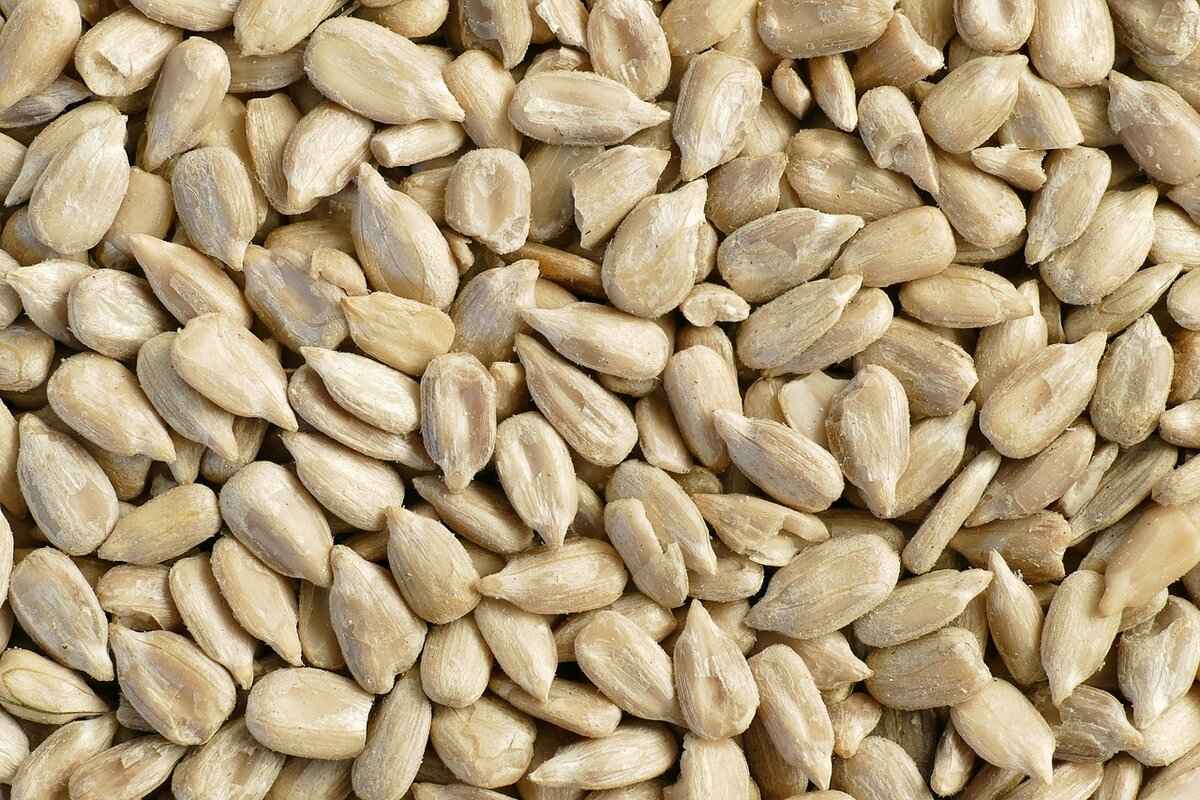
Can Chia Seeds Help with Weight Loss?
Chia seeds have gained significant attention in the health and wellness community, particularly for their potential role in weight loss. These tiny seeds, derived from the Salvia hispanica plant, are not only packed with nutrients but also have unique properties that may aid in weight management.
How Do Chia Seeds Promote Satiety?
One of the key reasons chia seeds may support weight loss is their remarkable ability to absorb water. When soaked in liquid, chia seeds can expand up to 10-12 times their original size. This absorption capability creates a gel-like substance that occupies space in the stomach, leading to a feeling of fullness. By promoting satiety, chia seeds can help reduce overall calorie intake, making it easier to adhere to a weight loss plan.
What Role Does Fiber Play?
Chia seeds are an excellent source of dietary fiber, containing approximately 11 grams of fiber per ounce. This high fiber content not only aids in digestive health but also helps regulate blood sugar levels. By slowing down the digestion process, fiber-rich foods like chia seeds can help maintain stable energy levels and curb cravings, which are often triggers for overeating.
How Do Chia Seeds Compare to Other Foods?
| Food Item | Calories (per 1 oz) | Fiber (grams) |
|---|---|---|
| Chia Seeds | 137 | 11 |
| Oats | 102 | 8 |
| Almonds | 164 | 3.5 |
As shown in the table, chia seeds are not only low in calories but also high in fiber compared to other popular health foods. This makes them an excellent choice for anyone looking to manage their weight effectively.
Can Chia Seeds Help Control Cravings?
Incorporating chia seeds into meals can also help control cravings. The gel-like texture they form when mixed with liquids can add volume to dishes without significantly increasing calorie content. For instance, adding chia seeds to smoothies or yogurt can create a more satisfying meal that keeps you feeling full longer. This can be particularly beneficial during times when cravings for snacks or sugary foods typically arise.
How to Use Chia Seeds for Weight Loss?
- Add chia seeds to smoothies for added thickness and nutrition.
- Mix them into oatmeal or yogurt for a fiber boost.
- Use chia seeds as a thickening agent in soups and sauces.
- Prepare chia seed pudding as a healthy dessert option.
Are There Any Considerations?
While chia seeds can be a beneficial addition to a weight loss regimen, it’s essential to consume them in moderation. Overconsumption may lead to digestive discomfort due to their high fiber content. Additionally, staying well-hydrated is crucial when incorporating chia seeds into your diet, as they can absorb a significant amount of water.
In summary, chia seeds can be a valuable ally in your weight loss journey. Their ability to promote feelings of fullness, regulate blood sugar, and control cravings makes them a powerful addition to a balanced diet. By incorporating chia seeds in various meals and snacks, individuals can potentially enhance their weight management efforts while enjoying the numerous health benefits these seeds provide.
How to Incorporate Chia Seeds into Your Diet
Chia seeds are not just a trendy health food; they are a nutritional powerhouse that can be easily incorporated into a variety of meals and snacks. Their versatility makes them an excellent addition to any diet, whether you’re looking to boost your nutrient intake or simply enjoy their unique texture. Here are some popular methods to incorporate chia seeds into your daily routine:
- Smoothies: Adding a tablespoon of chia seeds to your morning smoothie can enhance its nutritional profile. They blend well and provide a boost of omega-3 fatty acids, fiber, and protein without altering the flavor.
- Yogurt and Oatmeal: Sprinkle chia seeds over yogurt or oatmeal for added crunch and nutrition. They can absorb liquid, creating a delightful texture that complements creamy dishes.
- Baking: Chia seeds can serve as a fantastic egg substitute in baking. To replace one egg, mix one tablespoon of chia seeds with three tablespoons of water and let it sit until it forms a gel-like consistency. This is especially useful in vegan recipes.
- Salads: Toss chia seeds into salads for an extra crunch. They can absorb the dressing, enhancing both the flavor and health benefits of your meal.
- Chia Seed Pudding: Combine chia seeds with your choice of milk or a milk alternative, sweeten to taste, and let it sit overnight. The result is a creamy, nutritious pudding that can be flavored with fruits, nuts, or spices.
- Energy Bars: Incorporate chia seeds into homemade energy bars. Their ability to absorb moisture helps bind ingredients together while providing essential nutrients.
Absolutely! Chia seeds are not limited to sweet dishes. They can be added to savory recipes as well. For example, you can mix them into soups or stews to thicken the consistency. Additionally, they can be sprinkled on top of roasted vegetables or mixed into dips like hummus for a nutritious twist.
In addition to traditional uses, there are unique ways to enjoy chia seeds:
- Chia Fresca: This refreshing drink is made by mixing chia seeds with water and a splash of lemon or lime juice. It’s a hydrating option that provides a quick energy boost.
- Chia Jam: Create a healthy jam by combining mashed fruit with chia seeds. The seeds will thicken the mixture, creating a spreadable treat without added sugars.
To maximize the benefits of chia seeds, it’s important to consume them properly. Always soak chia seeds before eating them to improve digestibility and nutrient absorption. This also prevents them from expanding in your stomach, which can cause discomfort if consumed dry.
Incorporating chia seeds into your diet can be both delicious and beneficial for your health. With their numerous applications and health benefits, these tiny seeds can easily become a staple in your kitchen. Whether you choose to sprinkle them on your meals or blend them into smoothies, the possibilities are endless!
Chia Seed Pudding Recipes
Chia seed pudding has gained immense popularity as a nutritious and versatile dish that can be enjoyed at any time of the day. It is made by combining chia seeds with milk or a milk alternative, resulting in a creamy and satisfying treat. This delightful pudding can be customized in countless ways, making it a favorite among health enthusiasts and foodies alike.
The magic of chia seed pudding lies in its nutritional benefits and the ease with which it can be prepared. Chia seeds are rich in omega-3 fatty acids, fiber, and protein, which contribute to their superfood status. When soaked in liquid, chia seeds absorb up to 12 times their weight, creating a gel-like consistency that not only enhances the pudding’s texture but also aids in digestion and promotes satiety.
Making chia seed pudding is a straightforward process. Here’s a simple recipe to get you started:
- Ingredients:
- 1/4 cup chia seeds
- 1 cup milk or milk alternative (almond, coconut, or oat milk)
- 1-2 tablespoons sweetener (honey, maple syrup, or agave syrup)
- 1 teaspoon vanilla extract (optional)
- Instructions:
- In a bowl, mix the chia seeds, milk, sweetener, and vanilla extract.
- Stir well to prevent clumping.
- Cover and refrigerate for at least 2 hours or overnight.
- Before serving, stir again and add your favorite toppings.
One of the best aspects of chia seed pudding is its versatility. Here are some exciting variations to try:
- Chocolate Chia Seed Pudding: Add 2 tablespoons of cocoa powder and a pinch of salt to the basic recipe for a rich chocolate flavor.
- Fruit-Infused Chia Seed Pudding: Blend your favorite fruits, such as berries or mango, into the milk before mixing with chia seeds for a fruity twist.
- Matcha Chia Seed Pudding: Incorporate 1 teaspoon of matcha powder for an energizing boost and a vibrant green color.
Toppings can elevate your chia seed pudding from ordinary to extraordinary. Consider these options:
- Fresh fruits (bananas, berries, or kiwi)
- Granola or nuts for added crunch
- Shredded coconut or cacao nibs for extra flavor
- Nut butters for creaminess and protein
Chia seed pudding is perfect for meal prep! Make a batch at the beginning of the week and store it in individual containers. This way, you can enjoy a quick and nutritious breakfast or snack on busy days. Just remember to keep the toppings separate until you’re ready to eat to maintain their freshness.
In conclusion, chia seed pudding is not only a nutritious option but also a fun and creative way to experiment with flavors and ingredients. Whether you prefer it sweet or savory, the possibilities are endless. Enjoy this delightful dish as part of a balanced diet and experience the myriad health benefits it has to offer!
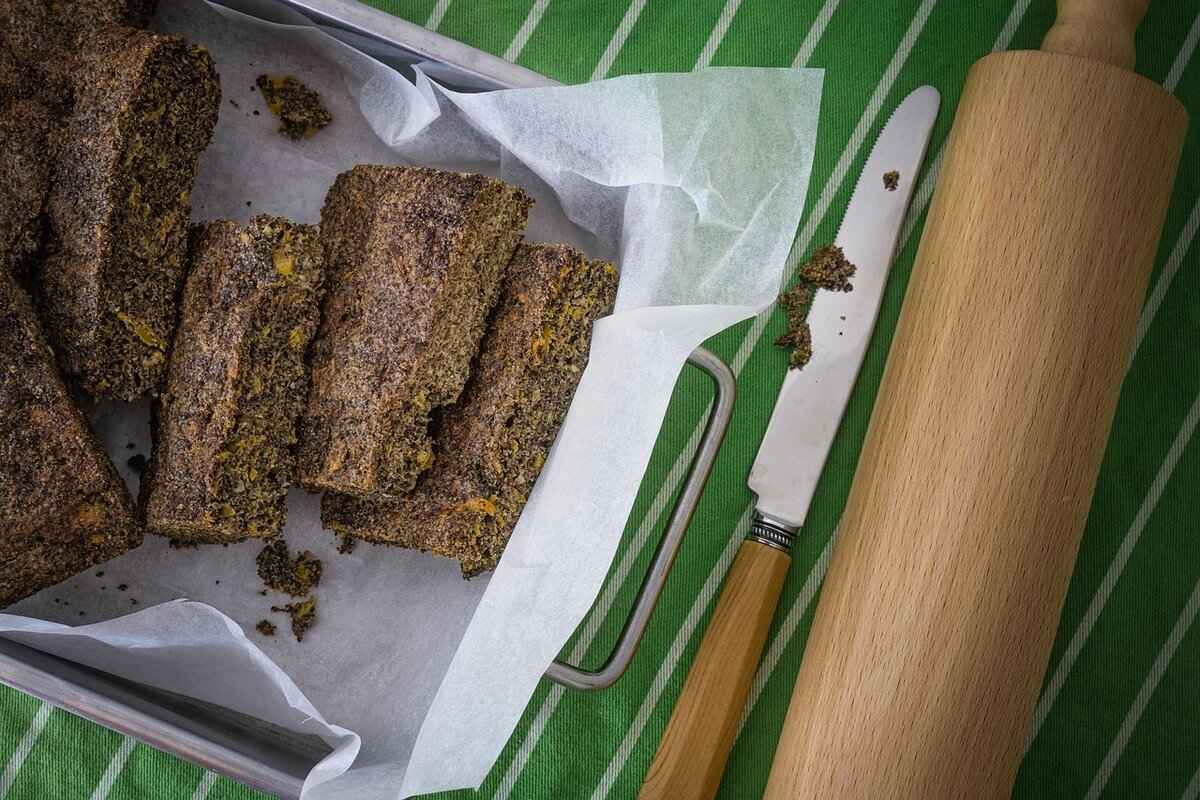
Are There Any Risks Associated with Chia Seeds?
Chia seeds have gained immense popularity in the health and wellness community, celebrated for their numerous benefits. However, it is crucial to understand that while they are generally safe for most people, there are potential risks associated with their consumption, particularly for individuals with specific health concerns.
Chia seeds, derived from the Salvia hispanica plant, are rich in nutrients and can be a valuable addition to a balanced diet. Nevertheless, some individuals may experience adverse effects when consuming these tiny seeds. Here are some key considerations:
Although rare, some individuals may have allergies to chia seeds. Symptoms can range from mild reactions, such as itching and hives, to more severe responses, including difficulty breathing. If you suspect an allergy, it is essential to consult a healthcare professional before incorporating chia seeds into your diet.
Chia seeds are exceptionally high in dietary fiber, which is beneficial for digestive health. However, for some individuals, especially those with pre-existing digestive conditions such as irritable bowel syndrome (IBS), excessive fiber intake can lead to discomfort, bloating, and gas. It is advisable to gradually introduce chia seeds into your diet to allow your digestive system to adjust.
Chia seeds can absorb up to 12 times their weight in water, forming a gel-like consistency. This property can be advantageous for hydration but may pose a risk if consumed without adequate fluids. To minimize the risk of digestive blockages, it is crucial to drink plenty of water when consuming chia seeds. Always soak them in liquid before eating, as this helps them expand and become easier to digest.
Chia seeds may interact with certain medications, particularly those that affect blood sugar levels or blood pressure. Due to their ability to lower blood sugar and blood pressure, individuals taking medications for these conditions should monitor their levels closely. Consulting with a healthcare provider before adding chia seeds to your diet is highly recommended.
While chia seeds are nutrient-dense, moderation is key. Excessive consumption can lead to digestive discomfort and may contribute to an imbalance in nutrient intake. A typical serving size is about 1-2 tablespoons per day, which provides ample health benefits without overwhelming your system.
In summary, chia seeds offer a wealth of health benefits, but it is important to be aware of the potential risks associated with their consumption. By understanding these risks and taking appropriate precautions, you can enjoy the nutritional advantages of chia seeds while minimizing any adverse effects. Always consult with a healthcare professional if you have concerns or pre-existing conditions that may be affected by adding chia seeds to your diet.

How to Choose Quality Chia Seeds?
Choosing high-quality chia seeds is essential for anyone looking to enhance their health and wellness. These tiny seeds, packed with nutrients, can be a fantastic addition to your diet, but not all chia seeds are created equal. In this guide, we will explore the key factors to consider when selecting the best chia seeds for your needs.
The quality of chia seeds can significantly impact their nutritional value and health benefits. High-quality seeds are more likely to be rich in essential nutrients, free from contaminants, and provide the desired health effects.
When shopping for chia seeds, always opt for organic and non-GMO varieties. Organic seeds are grown without synthetic pesticides and fertilizers, ensuring a cleaner product. Non-GMO seeds guarantee that they have not been genetically modified, preserving their natural properties.
It’s crucial to choose chia seeds that are free from additives and preservatives. Many commercial brands may add unnecessary ingredients that can diminish the health benefits of chia seeds. Always read the label carefully to ensure you are getting pure seeds.
Quality chia seeds should be packaged in a way that protects them from light, moisture, and air. Look for seeds that are stored in opaque or dark containers, as this helps to prevent oxidation and maintain freshness. Additionally, check for a sealed package to ensure that the seeds have not been exposed to contaminants.
High-quality chia seeds are typically uniform in size and have a rich, dark color. Smaller seeds may indicate inferior quality, while a mix of colors could suggest poor processing. Choose seeds that are consistently black or dark brown for the best quality.
Before purchasing, take the time to research the brand. Look for companies that are reputable and have positive reviews from consumers. Brands that prioritize quality and transparency often provide information about their sourcing and processing methods, which can be a good indicator of their product’s integrity.
While it can be tempting to go for the cheapest option, remember that quality chia seeds may come at a higher price. Investing in high-quality seeds can lead to better health benefits and a more enjoyable experience. Compare prices between brands, but prioritize quality over cost.
- Health food stores
- Organic grocery stores
- Reputable online retailers
Purchasing from trusted sources ensures that you are getting the best quality chia seeds available.
In summary, selecting high-quality chia seeds is vital for maximizing their health benefits. By looking for organic, non-GMO options, checking for additives, examining packaging, and researching brands, you can ensure that you are making the best choice for your health. Remember, investing in quality seeds is an investment in your well-being.

What Are the Best Ways to Store Chia Seeds?
Chia seeds are a fantastic addition to any diet, but to reap their full nutritional benefits, it is essential to store them properly. Understanding the best ways to store chia seeds can significantly impact their freshness, flavor, and overall health benefits.
Chia seeds are rich in omega-3 fatty acids, fiber, and antioxidants, but these nutrients can degrade if the seeds are not stored correctly. Improper storage can lead to rancidity, loss of flavor, and diminished health benefits. Therefore, it’s crucial to know how to keep these tiny powerhouses fresh.
- Cool, Dry Place: Chia seeds should be kept in a cool and dry environment to prevent moisture buildup, which can lead to mold growth.
- Airtight Containers: To maintain freshness, store chia seeds in an airtight container. This will help protect them from air exposure, which can cause oxidation.
- Dark Locations: Light can also degrade the quality of chia seeds. Keeping them in a dark cupboard or pantry is ideal.
Yes, refrigerating or freezing chia seeds can extend their shelf life. When stored in the refrigerator, they can remain fresh for up to two years. If you choose to freeze them, ensure they are in a sealed container to avoid moisture absorption. This method is particularly useful if you buy in bulk.
When stored properly, chia seeds can last for quite some time. Typically, they can remain fresh for about two years if kept in an airtight container in a cool, dark place. However, always check for any signs of spoilage, such as an off smell or discoloration, before consuming.
- Unpleasant Odor: Fresh chia seeds have a mild, nutty scent. If they smell rancid or off, it’s best to discard them.
- Change in Color: Look for any discoloration. Fresh seeds should maintain their black or white color.
- Texture Changes: If the seeds feel sticky or clump together, they may have absorbed moisture and should not be consumed.
If you buy chia seeds in bulk, it’s advisable to divide them into smaller portions and store them separately. This way, you can minimize exposure to air and moisture each time you open a container. Only take out what you need, and keep the rest sealed.
Proper storage of chia seeds is essential to maintain their freshness and nutritional value. By keeping them in a cool, dry place in an airtight container, you can ensure that these tiny seeds remain a healthy addition to your diet for a long time. Whether you choose to refrigerate or freeze them, being mindful of their storage will help you enjoy their numerous health benefits.
Frequently Asked Questions
- What are the health benefits of chia seeds?
Chia seeds are a powerhouse of nutrition! They are rich in omega-3 fatty acids, fiber, and protein, which can boost heart health, aid digestion, and help with weight management. Think of them as tiny superheroes for your body!
- How can I incorporate chia seeds into my diet?
You can sprinkle chia seeds on your morning yogurt, blend them into smoothies, or even use them as a thickening agent in soups and sauces. They’re super versatile—like that friend who can fit in anywhere!
- Are there any risks associated with eating chia seeds?
While chia seeds are generally safe for most people, they can cause digestive issues for some, especially if consumed in large amounts. Always start with a small serving and drink plenty of water—consider it your hydration buddy!
- How should I store chia seeds?
To keep your chia seeds fresh and nutrient-packed, store them in an airtight container in a cool, dry place. Think of it as giving them a cozy home where they can thrive!
- Can chia seeds help with weight loss?
Yes! Chia seeds can absorb water and expand in your stomach, which helps you feel full longer. They’re like a natural appetite suppressant—perfect for those looking to manage their weight!














